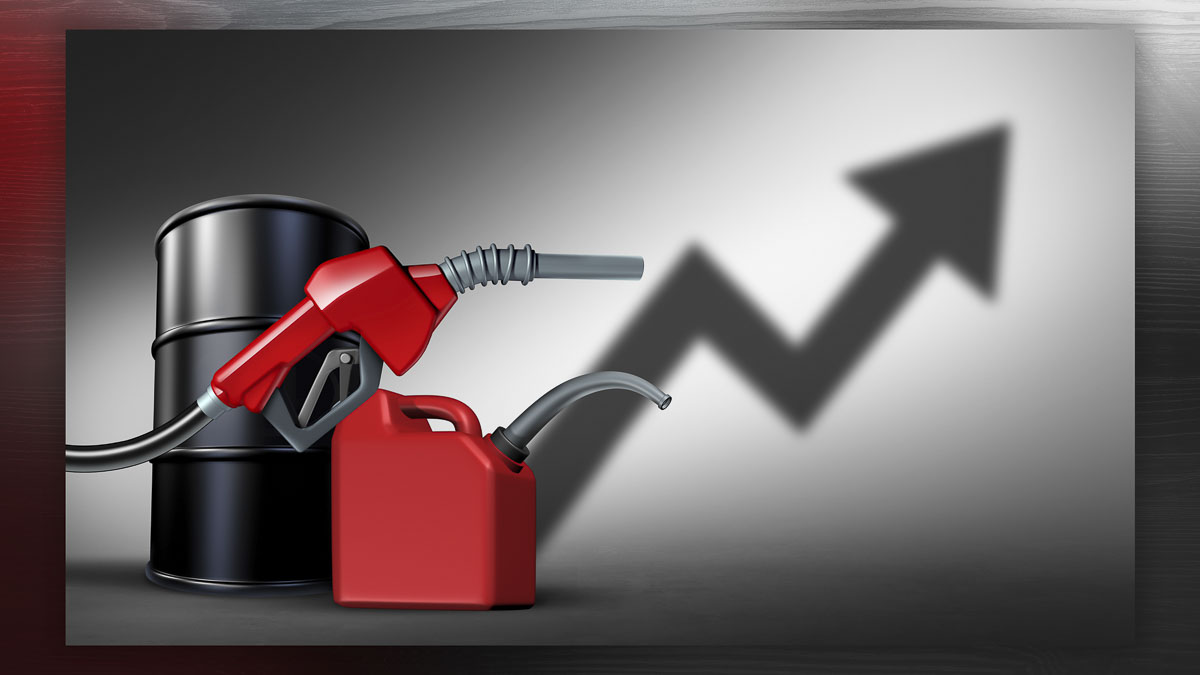
Todd Myers states that whether voters understood the price of keeping the CCA in place, they may soon find out the cost of their vote
Todd Myers
Washington Policy Center
Washington’s CO2 tax jumped after the failure of I-2117, likely increasing gas and energy prices compared to neighboring states. The price increase could double the impact on gas prices, increasing to about 45 cents per gallon.
The CO2 tax is set at auctions and on private markets when organizations covered by the law, including the University of Washington, BP oil, and the City of Enumclaw, purchase allowances covering their emissions.
Immediately after voters decided to keep Washington’s tax on CO2 emissions, allowance prices on the private market jumped by more than 10% to about $57 per metric ton (MT) of CO2 according to the cCarbon dashboard of Washington Carbon Allowances. This capped off an increase of more than $20/MT during the last 45 days leading up to the election.

If prices in December’s state-run CO2 auction reach the price in the private market, it would imply an increase of about 21 cents per gallon of gas and 26 cents per gallon of diesel. The CO2 price would nearly double, going from $29.88/MT (about 24 cents per gallon) to $57/MT (about 45 cents per gallon).
As cCarbon noted, “Last week, the people of Washington voted to uphold the Cap-and-Invest program…In response, WCA prices surpassed the Tier 1 threshold of $56.16, closing at $57 on Friday.” The price on the private market has consistently been slightly higher than prices at the state auction, so the increase at December’s auction may be less than the cCarbon data imply.
The price, however, is consistent with the results of the state’s auction of credits from the Allowance Price Containment Reserve in October, which sold more than one million CO2 allowances at a flat price of $56.16. Just over one-third of those credits sold, indicating that some emitters were short of the required allowances they needed for compliance. Others may have bid in case I-2117 failed and the price increased.
Over the past three months, as the private market price for Washington’s CO2 allowances jumped more than 60 percent – from $35.63 to $57.13 – California’s price only increased about 8 percent – from $35.45 to $38.38. Those prices indicate something happened in Washington that did not occur in California.
We may already be seeing the impact of these increases in gas prices. On July 1, according to GasBuddy, the difference between the prices in Oregon and Washington was about 22 cents per gallon, less than two cents different from what would be implied by the CO2 price from the June auction or $29.92/MT CO2. On November 11, that gap had grown to 40 cents per gallon.
There are several factors that make attributing the increase to the change in carbon markets difficult. First, there is a lag between the time credits are purchased and the cost shows up at the pump. Second, since allowances are now a combination of the private market and the state auctions, it is hard to determine how significant the impact of CO2 allowance price changes are. Of course, there are also other factors unrelated to Washington’s CO2 that could cause prices to be different in the two states.
It is notable, however, that since Washington’s CO2 tax took effect on January 1, 2023, the price differential between the two states has been fairly close to the price implied by the cost of the CO2 allowances.
Auction prices in Washington have been artificially depressed this year because bidders didn’t know if the CCA would be repealed, which would have made CO2 allowances worthless. As the private market prices indicate, that is likely to change at the next auction.
Leading up to the vote, Reuven Carlyle, the former state senator who now runs a climate finance company, dismissed predictions that prices would increase if voters rejected I-2117. He claimed the reduction in CO2 prices this year was a natural part of the market. The jump in prices on the private market are a good indication that he was wrong. However, if Reuven still believes the previous auction price of $29 is more typical, I am willing to bet $100 to charity that prices will jump above $50 at the next state auction.
Rachel Smith, the President of the Seattle Chamber of Commerce also argued that repealing the CO2 tax wouldn’t necessarily cut gas prices. She is free to now argue that increases in the CO2 price won’t necessarily increase prices and take my bet.
I’m not holding my breath. Those arguments from Reuven and Rachel were election year demagoguery. They know better than to risk their money on those obviously false claims.
Going into 2025, the prices are likely to increase again. The number of CO2 allowances will decline again by about 8 percent.
Whether voters understood the price of keeping the CCA in place, they may soon find out the cost of their vote.
Todd Myers is the vice president of research at the Washington Policy Center.
Also read:
- House Democrats advance $18B in tax hike proposals as session winds downHouse Democrats in Washington advanced several tax hike proposals as the legislative session nears its end, aiming to address a major budget shortfall.
- Republican budget leaders see showdown ahead as Senate Democrats approve trio of major tax increasesSenate Democrats in Washington have approved major tax increases, prompting Republican budget leaders to warn of a growing showdown ahead.
- Representatives from the 18th and 20th Legislative Districts to hold joint town hall on May 3Lawmakers from the 18th and 20th Legislative Districts will host a joint town hall on May 3 at Battle Ground City Hall to review the legislative session and hear from residents.
- POLL: Why did voters reject all three tax proposals in the April 22 special election?Clark County voters rejected all three tax measures on the April 22 special election ballot, prompting questions about trust, affordability, and communication.
- Opinion: The war on parental rightsNancy Churchill argues that Olympia lawmakers are undermining voter-approved parental rights by rewriting key legislation and silencing dissent.










